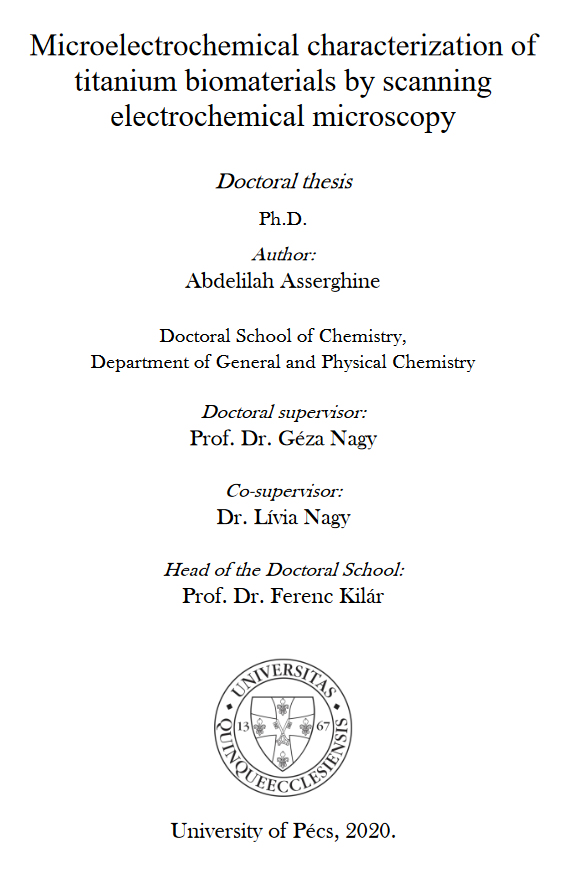Microelectrochemical characterization of titanium biomaterials by scanning electrochemical microscopy
Abstract
8Aims of the workTitanium and its alloys are of great industrial interest due to their versatility. They have broad-scale applications especially in aeronautics, electrochemical industries, and orthodontia. Indeed, the titanium alloys have been widely used for clinical applications such as dental implants, stents, and orthopedic devices because of their biocompatibility and their outstanding mechanical properties such as low elastic modulus, high tensile strength, and low density. Also, they are known for their exceptional osseointegration character functioning in living tissue. Besides, they are well known for the formation of robust protective film on the surface. That provides a high corrosion resistance via inhibiting the release of metal cations from the surface and hinders the electron transfer reactions with the surrounding environment. However, the clinical problems of titanium and its alloys were broadly reported. Metal ions were detected in blood and urine also localized corrosion was observed in vitro and in vivo. In fact, the improvement of properties of titanium-basedbiomaterials required a deep comprehension of the electrochemical featurethat take place on their surface.The corrosion resistance of frequently used biomaterials made of pure titanium, and its alloys such as Nitinol, as well as its change upon different mechanical and physiological impacts is an extremely important character. Most of the corrosion studies of objects used as implanted medical supports were done with conventional methods. The reports appeared about the results of these experiments however, turned up some questions, or uncertainties. Application measurements with new ultramicroelectrodes combined with the conventional methods seemed very promising for obtaining fine details about the corrosion resistance and about its changes. It was specially so far using SECM with its different modes and measuring micro tips. In my research I planned to prepare different ultramicroelectrodes applicable in SECM measurement, work out selective SECM methods applicable for corrosion studies and use them in examination of the corrosion of biomaterial objects made of titanium and titanium alloys.

